Dial M for Murder (1954)
“People don’t commit murder on credit.”
|
Synopsis: |
|
Genres, Themes, Actors, and Directors:
Response to Peary’s Review: It’s much stagier than most of Hitchcock’s films, and relies an awful lot on dialogue to further the plot, but Knott’s story is so cleverly constructed that it’s easy to remain engaged till the end, despite the relatively static action. Milland, Kelly, and Cummings are fine in their respective leading roles: … however, the most enjoyable performances are given by Anthony Dawson as Milland’s unwitting “hired hand” (as DVD Savant notes, he’s “really the victim of the piece”): and John Williams as a mustache-twirling Inspector, who has more than one card up his sleeve. Note: Dial M for Murder was shot in 3-D, but looks just fine in its “flat” version as well. Redeeming Qualities and Moments: Must See? Links: |
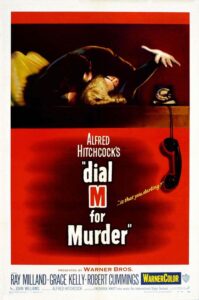
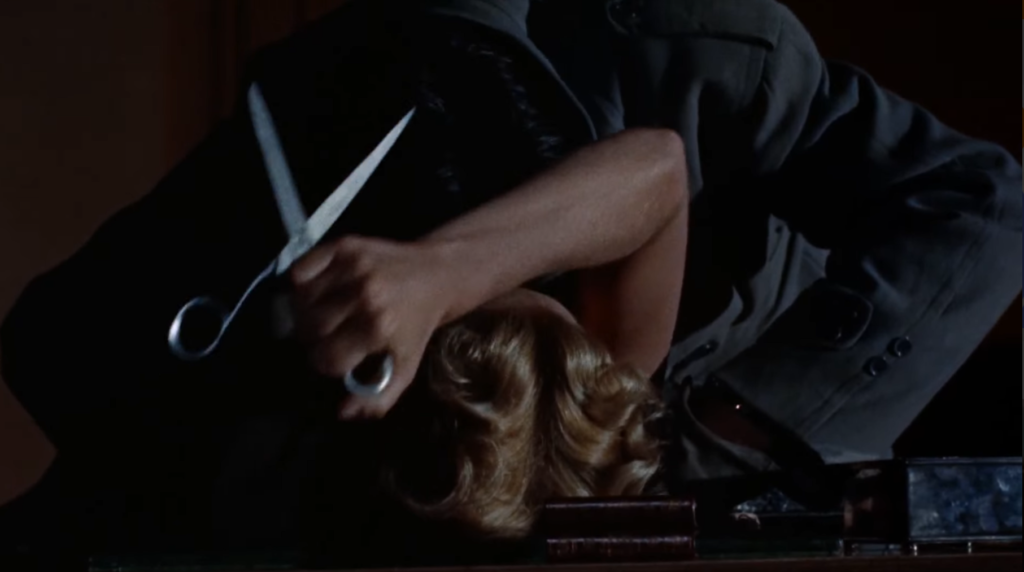
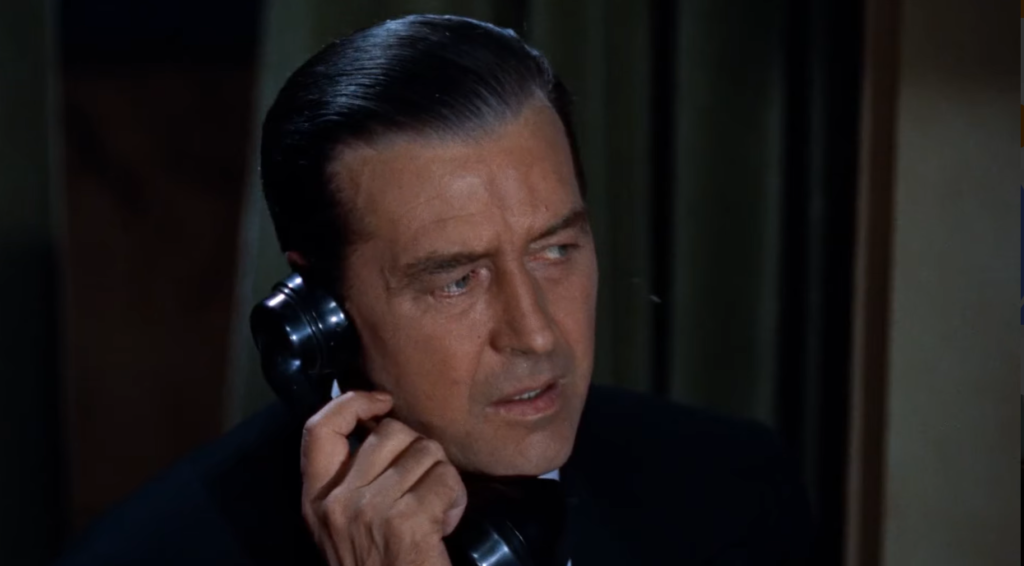
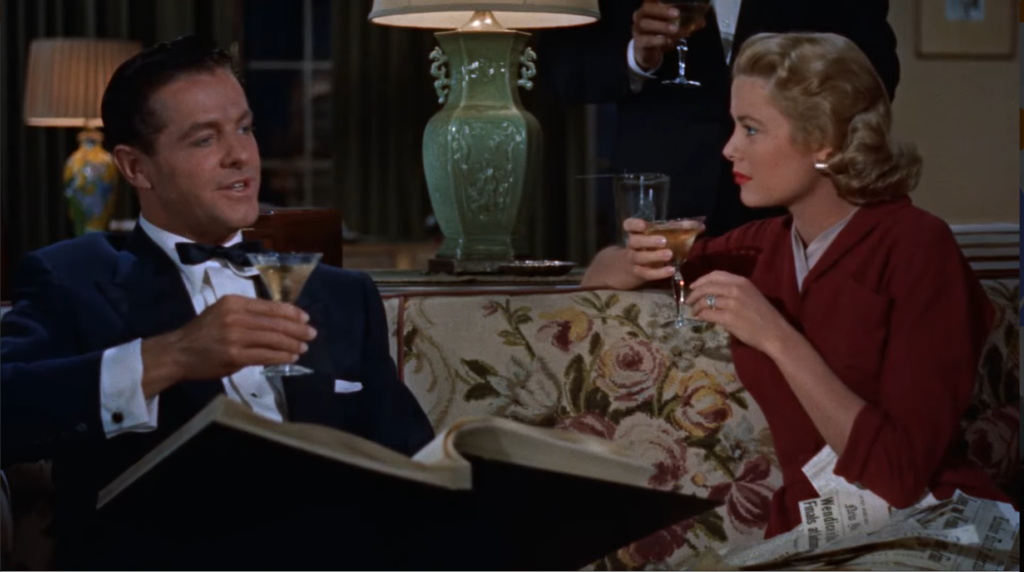
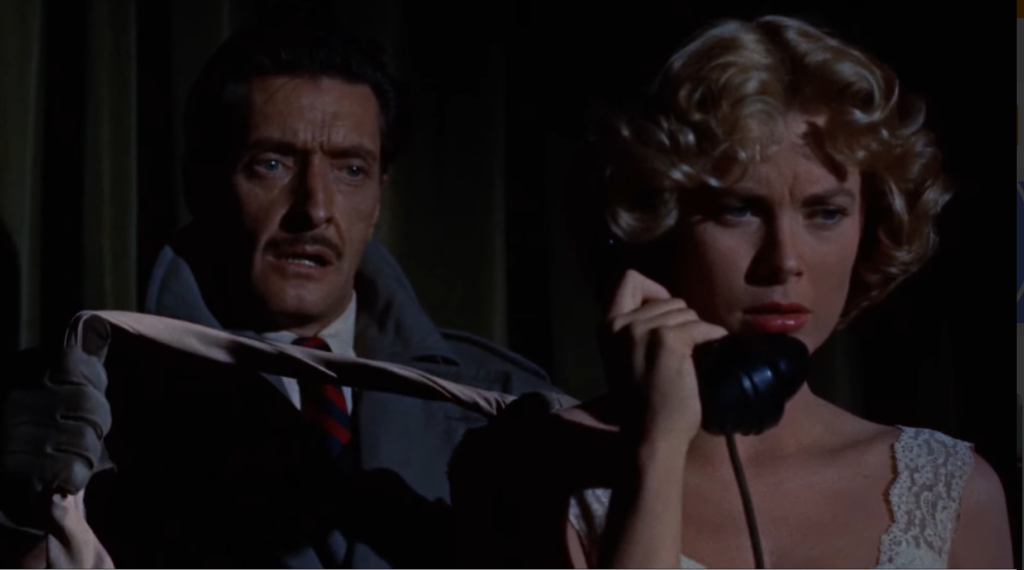
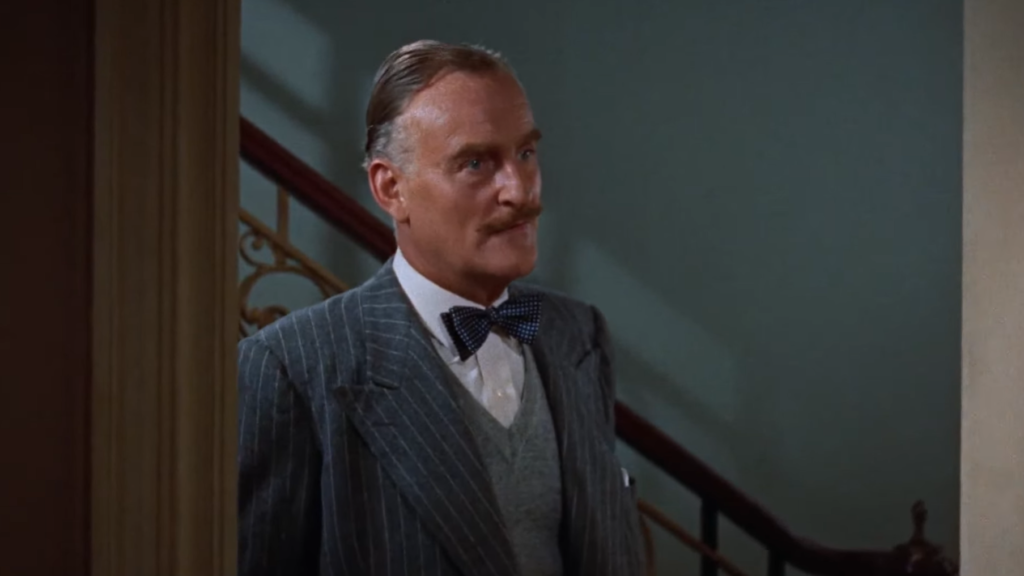
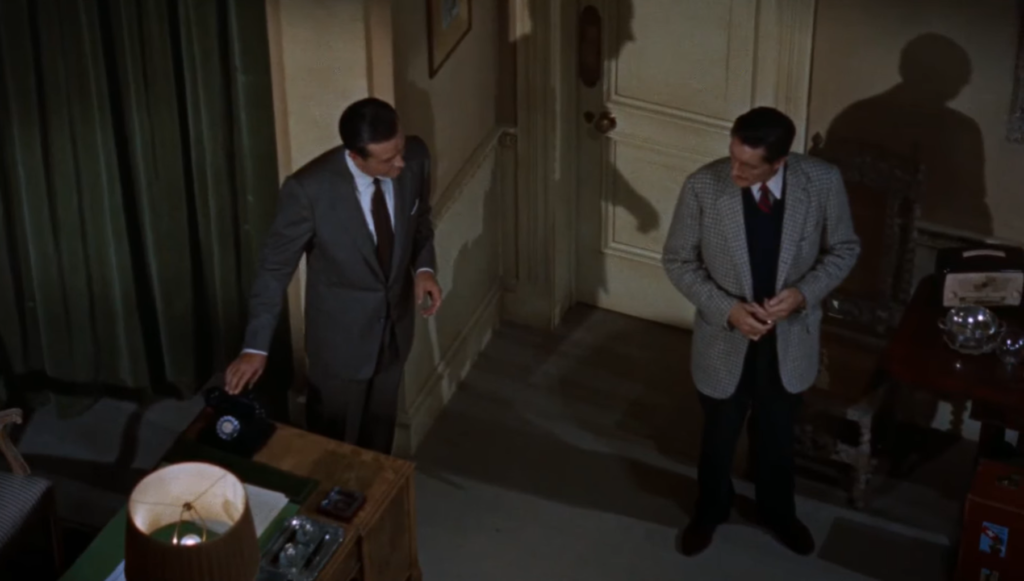
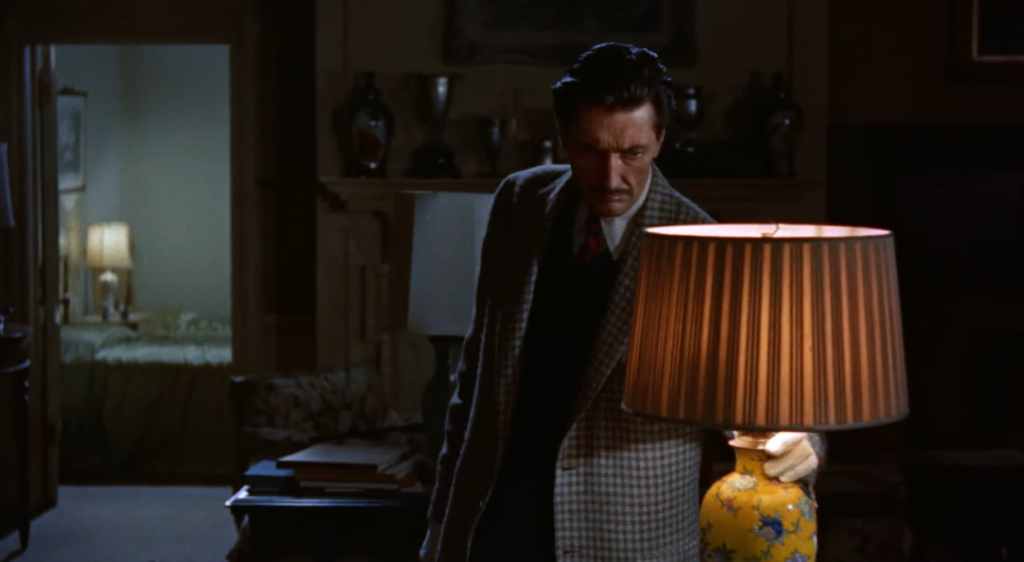
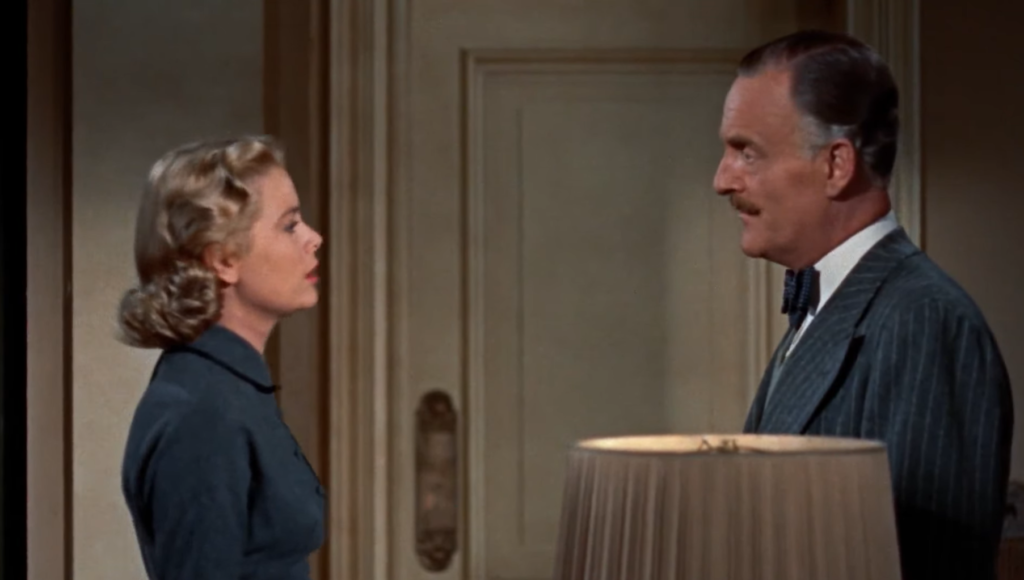
One thought on “Dial M for Murder (1954)”
Not must-see.
As a film, this is one of my least favorites from Hitch. The middle section – everything surrounding the crime – is the only time ‘Dial…’ works…as a film. During the first third, Hitch himself seems bored, as everything seems shot unimaginatively. Granted, this long section consists of nothing but set-up…but couldn’t Hitch have done *something* to beef up the tension a little more? It’s disappointing that he doesn’t.
Post-crime, there is quite a deal of talk (and almost nothing but) during the police procedural aftermath. Those who enjoy brain-teasers will certainly be wrapped up in a number of the clever, verbal twists and turns…but, once again, the film almost ceases being interesting…as a film. So, overall – too much of the film just comes off as flat.
That said, generally the performances are fine, in a standard crime drama sort of way.